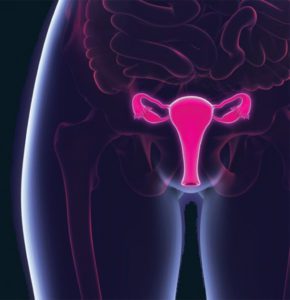 Cervical cancer is a fast-growing disease that can lead to death if not caught in its pre-stages. Years ago, cervical cancer was a leading cause of death in women. Those statistics have changed. In fact, diagnosing precancerous cervical lesions is now more common; this is achieved through preventative pap smear tests. Women that receive annual Pap tests are preventing cervical and other genital cancers. When these precancerous lesions are discovered early, they can easily be cut out and monitored right in your gynecologist’s office.
Cervical cancer is a fast-growing disease that can lead to death if not caught in its pre-stages. Years ago, cervical cancer was a leading cause of death in women. Those statistics have changed. In fact, diagnosing precancerous cervical lesions is now more common; this is achieved through preventative pap smear tests. Women that receive annual Pap tests are preventing cervical and other genital cancers. When these precancerous lesions are discovered early, they can easily be cut out and monitored right in your gynecologist’s office.
The Symptoms of Cervical Cancer are Sometimes
Vague, but May Include the Following:
• Abnormal menstrual bleeding
• Bleeding after intercourse
• Bleeding after menopause
• Pain during sex
• Pelvic Pain
• Spotting
• Vaginal discharge
• Back Pain
The HPV vaccine is highly recommended for teen girls to prevent the HPV virus that causes cervical and genital cancers.
HPV Facts & Treatment
Human papillomavirus (HPV) infection is the most significant risk factor for developing cervical cancer. HPV is made up of 150 viruses and can infect the cells of the cervix and spreads through sexual encounters, as well as be passed down through childbirth. Other risk factors that exacerbate or lead to cervical cancer are a weakened immune system, smoking, chronic infections, having a child in your teenage years, and having multiple full-term pregnancies.
There are little to no signs or symptoms of cervical cancer and other genital cancers, so the most proactive way to prevent these cancers from growing is to have regular pap smears on a routine basis. The test results will show positive signs of cancer or precancerous lesions. In the gynecologist’s office, they can do a simple test to see where the cervical cancer is and can evaluate its severity. Usually, if caught early enough, the cancerous lesions can be removed right in the comfort of the office.
Wellness Exam & Pap Smear
Women should have a preventative wellness examination once a year. For women with gynecological conditions such as a history of HPV, precancer, cancer or other genital disorders, they need more frequent exams as directed by their gynecologist to monitor their needs and to keep them healthy.
The latest guidelines for pap smear are as follows:
• Women aged 21–29 years should have a Pap test alone every 3 years. HPV testing is not recommended.
• Women aged 30–65 years should have a Pap test and an HPV test (co-testing) every 5 years (preferred). It also is acceptable to have a Pap test alone every 3 years.
Most insurance covers a pap smear as part of your yearly wellness examination once a year. Its best to see your gynecologist or woman health care provider yearly for your wellness, and they can decide with your history whether you need a pap smear or not. Annual gynecological exams are essential to early diagnosis and successful treatment.
DR. CHRIS GREVENGOOD
9400 Bonita Beach Road Southeast, Bonita Springs, Florida 34135
239-571-9765 | www.totalhealthcareofnaples.org










